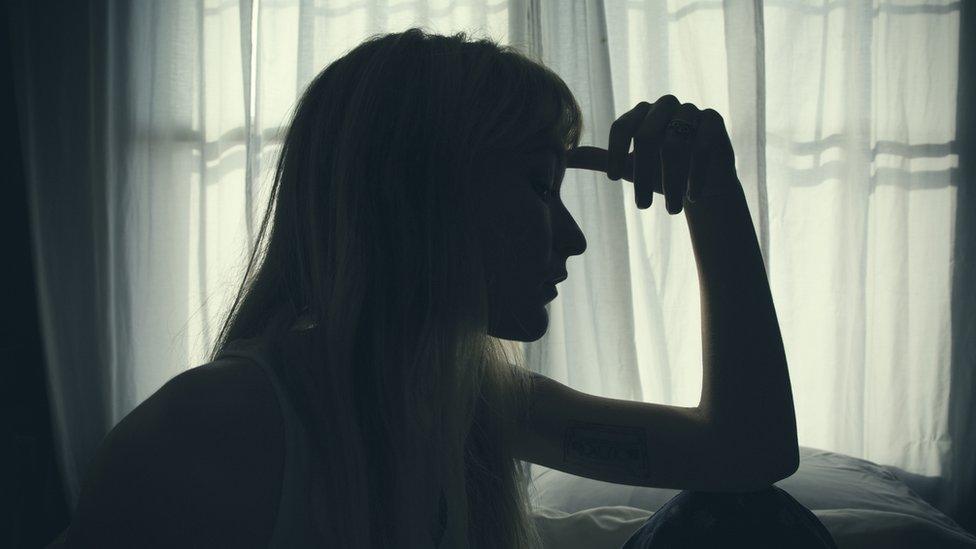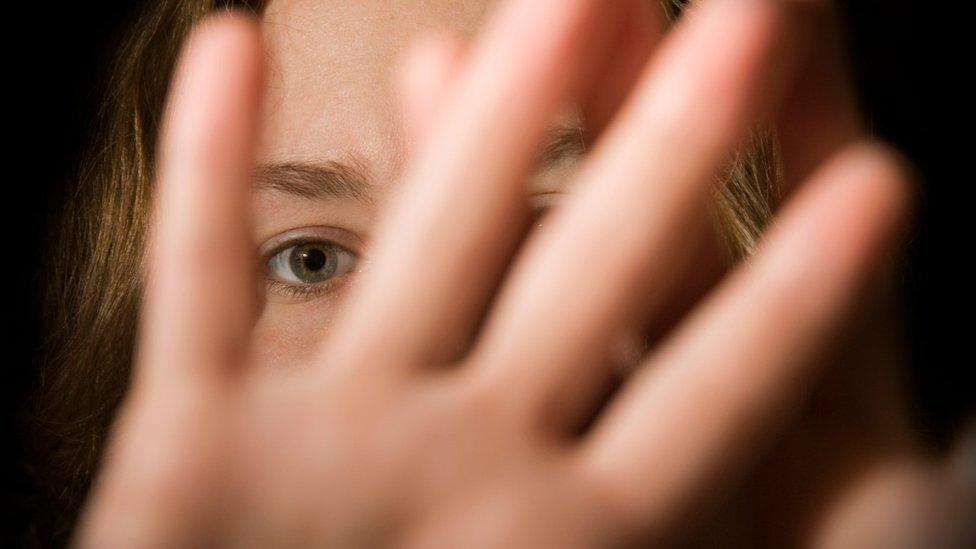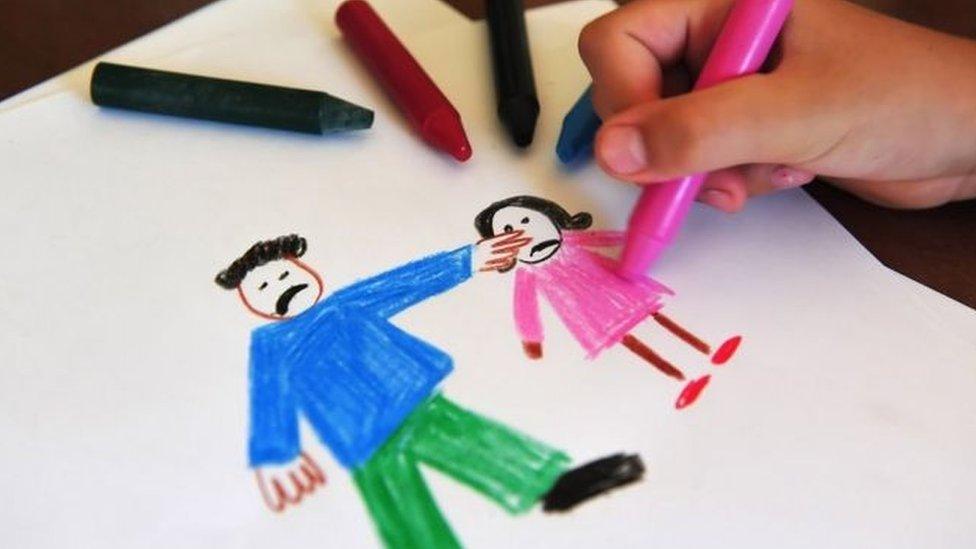Domestic abuse: New money for councils to help survivors
- Published

Councils will get an extra £6m to fulfil new duties set out in the government's Domestic Abuse Bill.
If the bill passes in Parliament, councils in England will have to provide support and safe accommodation for abuse survivors and their families.
The new funding is intended to help councils to plan services ahead of the duty coming into force in April 2020.
Charities and councils welcomed the announcement but called for wider funding of domestic abuse programmes.
The government says it expects the bill to help thousands more people.
The additional money comes on top of a £10m emergency fund given to councils to help domestic abuse survivors during the pandemic, which has seen a dramatic increase in people looking for support.
The Ministry for Housing, Communities and Local Government (MHCLG) said the emergency funding had provided an extra 1,500 beds.
It added that it would be holding a consultation on how to support councils with their new obligations.
The minister for rough sleeping and housing, Kelly Tolhurst, said: "Survivors of domestic abuse need safe refuge in order to escape this heinous crime, and support to start to rebuild their lives."
"The funding I am announcing today will help councils prepare for this new duty that will see thousands more survivors helped and a generation of their children able to grow up safely and free from fear of abuse," she added.
Refuges 'under threat
The £6m will be shared equally between England's local authorities, with each receiving £50,000 - with the exception of Northamptonshire County Council, which will receive double that amount in preparation for its split into two unitary authorities in April 2021.
Funding for Wales, which is also covered by the Domestic Abuse Bill, will be distributed according to the Barnett formula, external, which determines the proportion of funding received by the devolved administrations.
The Domestic Abuse Bill has been passed by MPs and is now making its way through the House of Lords. It was introduced by Theresa May's government in July 2019 but its passage was delayed by the general election.
The bill will implement a wide range of measures, including the first legal government definition of domestic abuse that includes emotional control. It would also prohibit perpetrators from cross-examining victims in person in the civil and family courts, and give priority housing to homeless victims of domestic abuse.
Refuge, one of the leading domestic abuse charities, welcomed the money, which it called an "important first step in guaranteeing that survivors of domestic abuse will be able to access the specialist support they need".
But Ellie Butt, the charity's head of policy and public affairs, said: "The government has not yet committed funds to back up the legal duty to provide refuge accommodation, and, without this, these new measures simply will not be effective.
"Many of the accommodation-based services that Refuge provides up and down the country are reliant on funding from the MHCLG, and unless more money is allocated to councils next year, these refuges will continue to be under threat of closure."
She said the government needed to commit "at least £174 million per year so that councils can commission the refuge accommodation that women and children fleeing domestic abuse so desperately need."
The Local Government Association said it was "pleased" with the announcement but said councils "cannot tackle this crime alone. Councils will need the cooperation of other public services, including the police, to work together on this."
It called on the government to "provide long-term and sustained funding for early intervention and prevention programmes and wider community-based domestic abuse support," and for "the introduction of a National Domestic Abuse Perpetrator Strategy. This funding needs to be similar in scale to the Youth Endowment Fund which is £200 million over 10 years."
- Published23 July 2020

- Published23 September 2020

- Published20 September 2020
